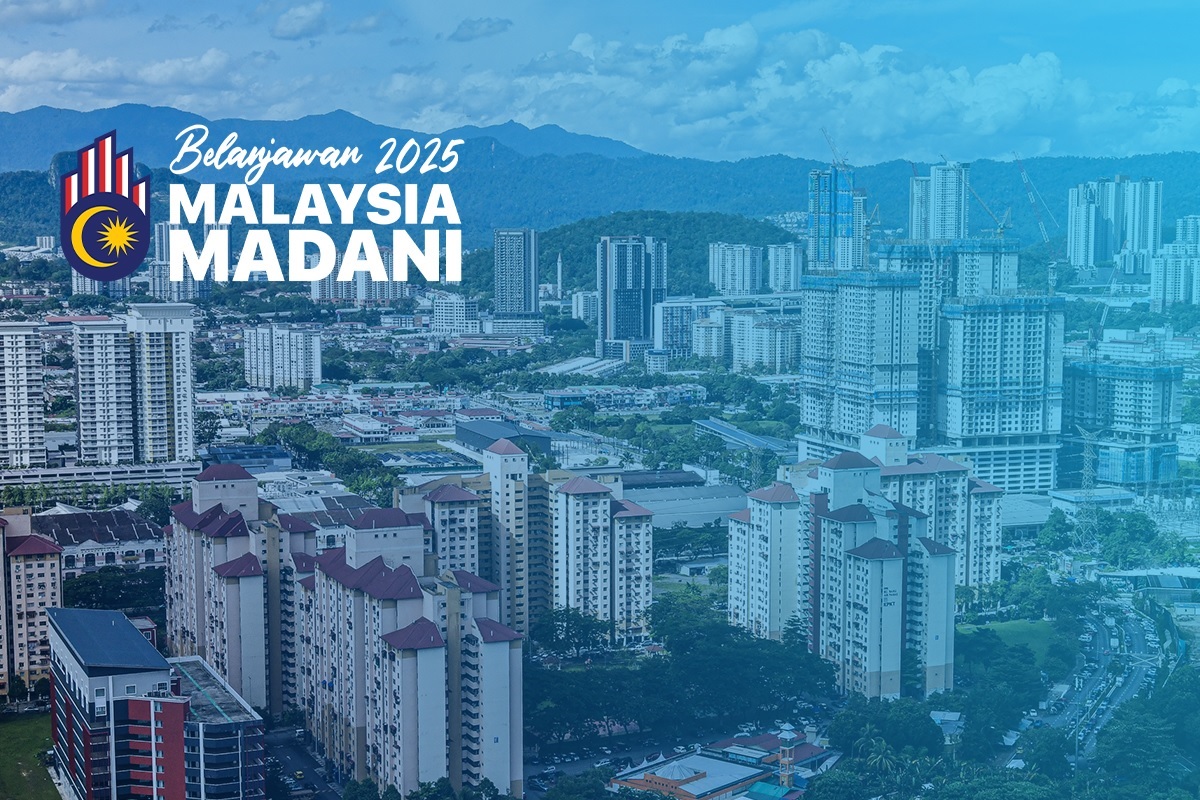
- The government announced individual tax relief for housing loan interest payments to encourage first-home ownership. Tax relief of as much as RM7,000 will be provided for homes worth up to RM500,000, while tax relief of up to RM5,000 will be provided for houses priced between RM500,000 and RM750,000.
KUALA LUMPUR (Oct 21): While the newly announced Budget 2025 is not a “property budget”, property consultants applaud the introduction of tax relief for housing loan interest payments up to RM7,000, which is expected to encourage first-time homeownership.
In the Budget 2025 tabled last Friday, the government announced individual tax relief for housing loan interest payments to encourage first-home ownership. Tax relief of as much as RM7,000 will be provided for homes worth up to RM500,000, while tax relief of up to RM5,000 will be provided for houses priced between RM500,000 and RM750,000.
Read also:
Budget 2025: Biggest ever allocation to reinvigorate economy
Budget 2025: HBA’s perspective
KPKT’s Budget 2025: 14 of its financial initiatives have been approved
“It is disheartening to note that the [reinstatement of the] Home Ownership Campaign was not announced. There was also no further announcement on the Madani Deposit scheme. What is outstanding in Budget 2025 is the tax exemption for the interest paid for housing loans for first-time homebuyers, which is heartening. This is a proactive measure to encourage homeownership,” said Olive Tree Property Consultants Sdn Bhd chief executive officer Samuel Tan.

Agreeing with Samuel, Savills Malaysia group managing director Datuk Paul Khong commented that Budget 2025 is not a “property budget”, as the majority of announcements are not real estate-focused.
“In short, there are no goodies for the property sector again in 2025. The sector is on the back burner without any changes, and developers and property investors alike are all on their own to brace through 2025, based on the same parameters set up for 2024. However, the re-mention of initiatives such as the Johor-Singapore Special Economic Zone and the redesignation of Forest City as a free trade zone will hopefully boost the local economy and tourism. Besides, first-time homebuyers will benefit from the tax relief,” Khong noted.

Meanwhile, Rahim & Co International Sdn Bhd director of research and strategic planning Sulaiman Akhmady Mohd Saheh commented that the government’s focus in Budget 2025 is to strengthen the economy and income level of the rakyat.
“The sentiment is also not to rush into the sectors of the economy that do not have a significant multiplier effect. The prime minister wishes to focus on human capital and the multiplier effect. For housing, it is good to hear the continued focus on first-time homebuyers, who are given continued support through the tax relief,” he noted.

Sharing a similar view with Sulaiman, Zerin Properties managing director and CEO Previndran Singhe said the government aims to boost homeownership and sustainability in Malaysia under Budget 2025, which eventually will have an impact on the property market.
“Budget 2025 provides a balanced approach by addressing both immediate housing affordability issues and longer-term sustainability goals. While the tax relief and housing loan support will stimulate demand, the introduction of the carbon tax and green incentives signals a shift towards a more sustainable property development landscape in Malaysia,” Previndran shared.
Meanwhile, CBRE | WTW group managing director Tan Ka Leong said that there are no “new game-changing” megaprojects, but the government’s focus on expenditure and facilities that will directly benefit the people is commendable.

“Measures beneficial to the property market and industry are relatively less prominent, but several proposed developments and plans are encouraging, such as the introduction of the Step-Up Financing Scheme under SJKP (Syarikat Jaminan Kredit Perumahan Bhd) with a government guarantee of up to RM5 billion, and the carbon tax.
“While the carbon tax may introduce additional costs, there are tax incentives for ESG (environmental, social and governance) investments and income tax exemptions for carbon capture, utilisation, and storage (CCUS) that can help mitigate the financial burdens for industrial players. These measures also encourage improved energy consumption management,” Ka Leong noted.

In the Budget 2025 presentation last Friday, the government announced a reduction in the repayment amount in the first five years for housing loans granted under the Housing Credit Guarantee Scheme offered by SJKP. It also introduced a carbon tax on the iron and steel, as well as energy industries by 2026, aiming to encourage the use of low-carbon technologies. Revenue from the tax will be used to fund research and green technology programmes.
Concluding Budget 2025 from the property industry perspective, Knight Frank Malaysia in a press release on Monday said that the government’s ongoing commitment to fostering inclusive growth, particularly through strategic infrastructure initiatives and sustainability measures, was outlined in Budget 2025.
“The emphasis on people-centric infrastructure and sustainability aligns with global real estate trends, such as green building practices and transit-oriented developments. Additionally, the strengthening of the ringgit will further reinforce confidence among foreign investors to invest in Malaysia’s real estate market, making it a more attractive destination. These investments will act as a catalyst for property market growth, boosting both residential and commercial demand and enhancing long-term property values,” the consultancy firm said.
Some of the investments include: infrastructure development and upgrading works; tax incentives for flexible working; the government’s focus on high-value sectors such as electrical and electronics and artificial intelligence (supported by investment tax incentives); emphasis on development in Sabah and Sarawak; and the merger of InvestKL and the Malaysian Investment Development Authority (Mida).
Other key property-related measures announced are the allocation of 50 acres (20.23 hectares) of the Bandar Malaysia development as Malay reserve land, which is first in Malaysia’s history, and that the government and private sector will utilise up to 8,800 acres of abandoned land belonging to regional development agencies and supporting agencies to undertake farming activities, such as poultry farming and community farming.
Looking to buy a home? Sign up for EdgeProp START and get exclusive rewards and vouchers for ANY home purchase in Malaysia (primary or subsale)!





